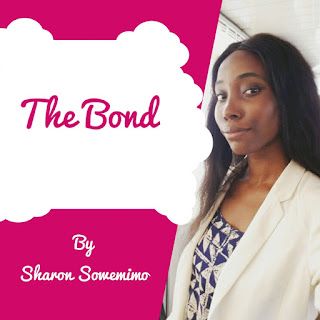6 Steps to Writing an Author Bio.
What is an Author Bio?
An author bio is vital information that informs a reader about the author's personality, background, his book(s), his style of writing, and what inspires their genre.
Author Bio's are usually required of in the publishing process. When a writer submits an entry for a writing competition or anthology, a writer's/author's bio is required.
If a Writer/Author intends to publish a book through traditional publishing means or online route; an author bio will still be required.
In essence, an author bio is vital to the completion of the publishing process as without it, the author will not be properly profiled.
The Author's bio apart from the synopsis of the book is usually a thing of interest to prospective readers when they stumble on a book.
Except the Author is a household name, they want to know something compelling about this author they have never heard of or come in contact with their work.
How to Write an Author Bio.
In writing an exceptional author bio that elicits interest, there are six steps to constructing such a concise yet content filled bio.
Here are six things the Author must do.
1. Write in the third person.
When you write your author bio, nobody easily believes it when it starts with a first person narrative.
There is the perception that you can easily fabricate flattering words to sound attractive. When a bio is written in the third person. It comes off as an opinion written by an authority. In other words, the reader assumes this new author has been vetted and deemed reliable by a superior personality in that industry.
So you do not want your bio sounding like,
"I write a new genre of poetry that could be termed as musical poetry due to its lyrical depth."
Rather
"Sharon Ojo writes a new genre of poetry that could be termed as musical poetry due to its lyrical depth."
This is power. With this sort of description, your book becomes of interest to the reader. There's something new they want to discover about you that your bio has mentioned. Third person is convincing.
2. Mention provable facts.
Do not make the mistake of lying in your author bio. Please do not. The internet will expose you.Only mention those things that are true. If you were shortlisted for a fellowship or competition. Indicate you were shortlisted, do not say you were a first runner up or you won it. To be shortlisted is not a bad thing. It is progress in itself.
Example:
"Sharon Ojo's works has appeared in the Biological Science Journal (2017) and Future and Nature (2018)."
Whereas, you submitted but your work was never published, but was shortlisted rather say
"Sharon Ojo's works was shortlisted in the Biological Science Journal (2017) and Future and Nature
(2018)"
3. Include important education and experience.
The same as number 2 do not lie about your educational experience or qualification. Keep it concise and direct.
Example:
"Sharon Ojo has a PhD in Microbiology from the University of Leeds."
Whereas,
"Sharon Ojo is a PhD student of Microbiology at the University of Leeds."
4. Include memberships ( If it is required).
If you are submitting to a journal, anthology or publishing firm that requires you include memberships in your bio. Then include the membership details. If you don't belong to any group also do not lie that you do. Memberships include, Book Clubs, Review Clubs, School Clubs but they must be related to your writing journey.
Example:
"Sharon Ojo is an active member of the Biological Science Society."
Keep it simple.
5. Write with precision and concisely.
You want your Author Bio to come off as something written by a professional. Avoid tacky sentences.
Write simple sentences in simple language. Do not use verbose words that do not match your personality and writing style. If you are overtly praised in your bio and your book is read and your writing does not match up to the praise in your bio, your book will be reviewed badly.
6. Include an attention interest.
End your bio with a unique interest or fascinating thing about your personality. What is fascinating to you does not have to be fascinating to other people. Just be your self, express the originality of your person by writing in the third person.
Example:
"Sharon Ojo loves to reach reproduction classes at a teens club in her spare time."
Or
"Sharon Ojo organises garden excursions when she's not writing."
Final Example:
Sharon Ojo is a PhD student of Microbiology at the University of Leeds. Her works has appeared in the Biological Science Journal (2017) and Future and Nature (2018). She is an active member of the Biological Science Society. Sharon Ojo loves to teach reproduction classes at a teens club in her spare time. Her blog naturenandyou.com showcases her poetry.
N.B: Make sure your bio leaves a little means of contact preferably social media for your reader's to connect with.
Author Bio Class
© Moncoeur Global Concept 2020


.png)
Comments
Post a Comment